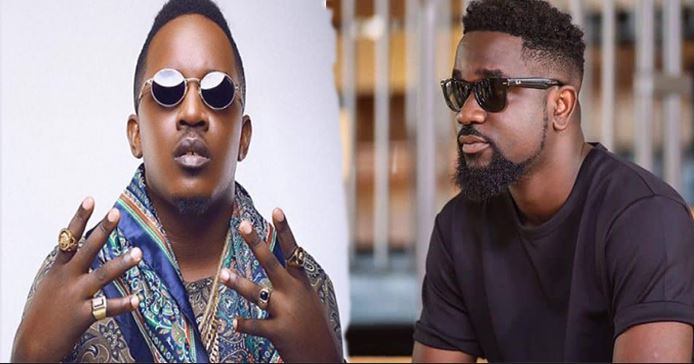![]()

The rise of African hip hop
Hip pop, which started as a music and a culture in New York in the 1970s, was a product of inner city life and has historically been the voice of the Black inner city youth.
But it has deep Jamaican and African roots, which can be seen in the rawness of its beats and the rhythm of its lyrics.
Advertisement
Some of the first pioneers of hip hop were from the Caribbean and brought with them the same rhythms and style that were to give birth to reggae in Jamaica. Hip hop, like all African American music styles, borrows from African traditions. In the case of hip hop, this is particularly true of its lyrics and their delivery.
Rapping in African music and culture is a tradition that was carried to the new world in the 1400s. History has come full circle and rap music and hip hop culture are now being re-created by African youth all over the continent, who have taken rap's current day manifestations and added a new African twist.
Hip hop music and culture landed in Africa between the 1980s and early 1990s. Since then, it has spread with the energy and passion of a musical and cultural revolution. The frustration, anger, poverty, joy, and spirit which young African American rappers expressed transformed the minds of millions of African youth, who related to the messages and stories being told.
Tales of poverty, crime, violence and corruption were also the stories of countless urban African youth. American rapper, 2Pac, became a legend across the continent precisely because of the social importance of his lyrics. There was no major city in Africa one could go to in the late 1990s and not see images of 2Pac or hear youth reciting him.
Hip hop was more than just another form of music, the fact that it was also its own subculture and a transmitter of political and social commentary was absorbed by African youth who related to all aspects of this new musical revolution. Many young artistes who would have once entered the music scene through the Afropop or traditional music genres have become hip hop artistes and have contributed to the evolution of the musical form in Africa.
Some Africans have suggested that those who embrace hip hop culture are no longer African because hip hop is not African; that they have become Americanised.
That criticism may have been very valid in the early 1990s when young Africans were simply imitating the beats and styles of popular American rap. Many of the early emcees were even rapping entirely in English, though it wasn't the language in which they were most comfortable.
But the hip hop scene has since changed. It has not evolved evenly across the continent, given Africa's size, it is rare that events happen simultaneously, but just like other music genres, African hip hop is unmistakably local.
The movement to Africanise hip hop is a trend that began in the mid to late 1990s. There were a couple of reasons: one, African artistes began feeling the heat from the United States over copyright laws, putting artistes under pressure to begin coming up with their own beats.
Two, in some countries, there seemed to be a backlash from the masses of hip hop fans who felt left out of the new music scene because of the mostly English and French lyrics.
Countries which have spawned some of the most interesting and dynamic hip hop scenes and artistes include Ghana, where the highlife music scene has merged with hip hop to create hiplife.
In Nigeria, the continent's largest population has produced a solid Nigerian hip hop scene and a strong Nigerian hip hop diaspora, with U.S. artistes like Young Joc, Chamillionaire and Ne-Yo.
Many feel that Senegal where the youth are representing Africa's most politically radical voice ranks number three in the hip hop world.
In East Africa, Kenya maintains several major rap "crews", who are the reigning kings and queens of East Africa's mainstream rap community.
Tanzania, land of ujamaa and Swahili, has gained enormous respect on the international rap scene with its Bongo flava, similarly Uganda's Lugaflow.
And then there's South Africa, where the infusion of hip hop and struggle is being expressed in the lyrics of the post-apartheid youth in huge communities in both Cape Town and Johannesburg.
Hip hop is not just a fad for the youth, but also includes 30-something Africans who are making it their professions and who are involved in recording, producing, marketing, and distributing to an increasingly influential and profitable market. It has yet to be seen the direction hip hop will take Africa's youth.
Even politicians in Africa are paying attention to hip hop. Africa's less democratic leaders will and do fear the political potential of a youth movement spurred by it, and have tried to censor the more politically charged artistes and marginalise the youth.
Others embrace the popularity that can be gained by supporting artistes in their countries, using hip hop's influence to spread party propaganda and to make sure their messages reach a mass audience.
This article was culled from allafrica.com




